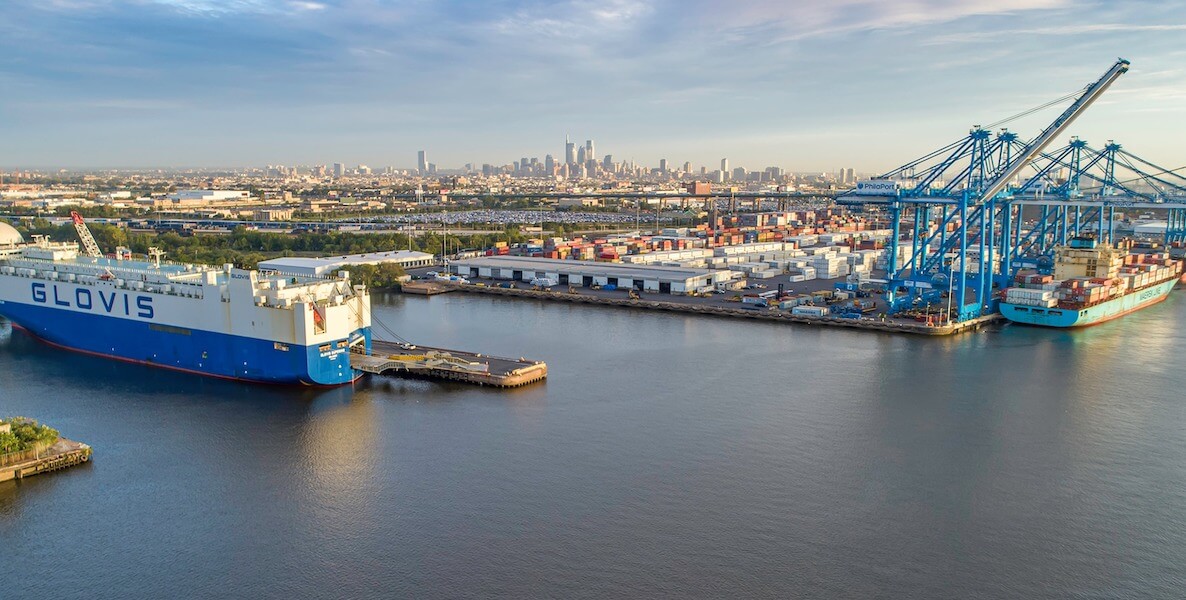Neighborhoods in Philadelphia may soon face a new threat to their safety and health. Even worse, they have no say in the matter. Late last year, Governor Wolf signed legislation establishing a task force to examine obstacles to turning the Port of Philadelphia (PhilaPort) area into an export terminal for explosive liquefied natural gas (LNG).
No community members or environmental advocates are a part of that task force. That means impacted individuals will have to work that much harder to make their voices heard. Nevertheless, it’s vital that they speak out and oppose this hazardous and misguided project.
The proposed terminal prolongs the threat fossil fuels pose to Pennsylvania and the world while placing surrounding communities and the entire city of Philadelphia at risk. Make no mistake: The danger is very real. Just last June, a pipe explosion at the Freeport LNG export plant in Texas caused a 450-foot fireball.
No one involved in the legislation creating the task force spoke to anyone at PhilaPort or its surrounding communities.
In Philadelphia, neighboring communities would bear the risk of a similar catastrophic explosion either at a port terminal or at any point in the infrastructure. These points include pipelines, trains and trucks needed to transport the LNG through Philadelphia neighborhoods to the port for export. A leak could also rapidly spread a suffocating blanket of the heavier-than-air gasses over a densely populated area. Despite these dangers, lawmakers have said that no one involved in the legislation creating the task force spoke to anyone at PhilaPort or its surrounding communities.
LNG’s larger danger
These immediate dangers to surrounding communities only represent a portion of the threat posed by a Philadelphia LNG export terminal. The full consequences reach far beyond Pennsylvania. The world must transition away from fossil fuels like LNG to avert the worst consequences of climate change. Unless countries keep their commitments to reducing greenhouse gas emissions, we will blow past 1.5 degrees Celsius of warming over pre-industrial levels.
The world’s leading climate experts agree that even half a degree more would place an additional 10.4 million people in danger from sea level rise, double the number of people with insufficient access to fresh water, and greatly increase the number of deaths from heat waves.
Pennsylvanians will also experience increased effects of the climate crisis at home that are already threatening our collective health and our way of life. Decreased air quality, more flood damage, and tick-borne illnesses like Lyme Disease are growing ever more common every day.
Neighboring communities would bear the risk of a similar catastrophic explosion either at a port terminal or at any point in the infrastructure.
Philadelphia residents and environmental advocates need to speak out. Building this terminal would signal that the U.S. is failing on its climate commitments. It would drive continued international reliance on LNG, a fossil fuel which the industry falsely touts as clean energy. In reality, LNG is largely methane, which, over the short term, drives global warming about 85 times as much as carbon dioxide.
Those pushing for the LNG export terminal are trying to use Russia’s invasion of Ukraine as justification for this misguided project. They claim that we need to assist other countries in compensating for the loss of Russian fuel. Instead, we should be helping these countries reduce their reliance on fossil fuels to achieve true energy independence and meet their own climate commitments.
More LNG exports also hurt Americans financially. Oil and gas industry executives overwhelmingly expect domestic gas prices to soar as increased LNG exports drive up prices. Sending LNG overseas serves those executives at the expense of regular American citizens who are struggling to make ends meet amid increasing economic uncertainty.
Philadelphia residents deserve better. We all do. Do not let the Philadelphia LNG Export Task Force serve the oil and gas industry without accountability. Contact your local representatives and tell them to keep an eye on the Task Force and to keep the public informed about its actions. Demand that they push Task Force members to actively seek input from the local communities. Let them know that you do not want a dangerous LNG export terminal in Philadelphia, and that your voice will be heard.
The Citizen welcomes guest commentary from community members who stipulate to the best of their ability that it is fact-based and non-defamatory.
Joseph Otis Minott, Esq., is executive director and chief counsel of Clean Air Council.
![]()
MORE ON THE ENVIRONMENT FROM THE PHILADELPHIA CITIZEN



